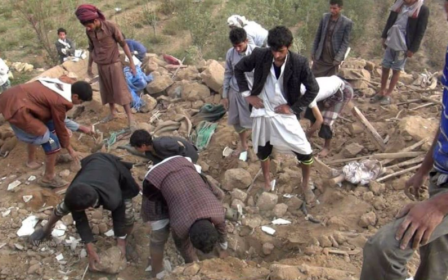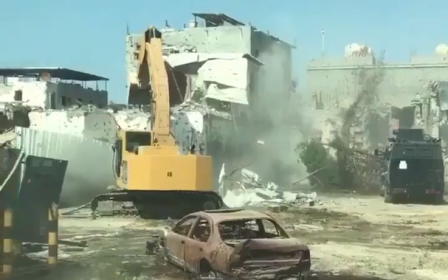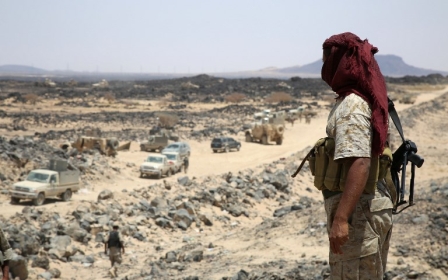Saudi Arabia defends decision to execute 14 Shia activists

Saudi Arabia defended its decision to execute more than a dozen Shia activists involved in demonstrations during the 2011 and 2012 Arab Spring revolts.
In a rare statement, the Saudi authorities said it had sentenced the activists to death based on a fair trial.
Human-rights activists claim that some of the sentenced men were tortured and forced into making false confessions. This later led to them being convicted to death in a secretive counterterrorism court.
The group included a teenager who was arrested at the airport before boarding a flight to visit a university in Michigan, and a youth who is half-deaf and nearly blind, activists said.
Shias in the Sunni-majority kingdom have long complained of discrimination and harassment by authorities.
Middle East Eye this week reported on the continued siege Saudi authorities have imposed on a Shia-majority town in the east of the country.
Last month, the kingdom's highest court upheld the death sentences, clearing the way for the executions to take place any day now.
A spokesman for the Saudi Ministry of Justice, Mansour al-Ghafari, said in a statement released on Friday that the trials met international standards for fairness and due process and that the "defendants enjoy full legal rights".
All of them had access to lawyers, and all court hearings were in the presence of the media and human-rights observers, Ghafari said.
In a response on Saturday, prominent human-rights group Reprieve told the Washington Post that the Saudi government's statement made several false claims and was "at odds with assessments by the UN and rights groups".
"Saudi Arabia's attempts to justify these 14 unlawful executions are appalling," said Reprieve director Maya Foa. "This statement is a serious mischaracterisation of the trial process against the 14 men."
At least one defendant was never permitted to see a lawyer, and in another defendant's case, no evidence against him was presented at trial, said Reprieve.
Officials with the United Nations last year said the secretive counterterrorism court "raises serious concerns about its lack of independence and due procedure." Its judges, they said, often refused to act on claims by defendants that "they had been subjected to torture".
Ghafari said the death sentences were handed down only "for the most dangerous crimes". Saudi officials in state media have claimed that the 14 men were arrested on terrorism-related charges. But activists say the Saudi government continues to conduct executions for alleged non-violent crimes.
Some of the 14 men were convicted of using cellphones to organise protests and of using social media, according to Reprieve.
"Governments close to Saudi Arabia - including the Trump administration and the UK - must urgently call on the kingdom to halt these executions," Foa said.
Other crimes that are punishable by death include adultery, blasphemy and sorcery. Execution methods include beheading, "crucifixion" (which involves beheading followed by public display of the body), firing squad and stoning.
New MEE newsletter: Jerusalem Dispatch
Sign up to get the latest insights and analysis on Israel-Palestine, alongside Turkey Unpacked and other MEE newsletters
Middle East Eye delivers independent and unrivalled coverage and analysis of the Middle East, North Africa and beyond. To learn more about republishing this content and the associated fees, please fill out this form. More about MEE can be found here.




